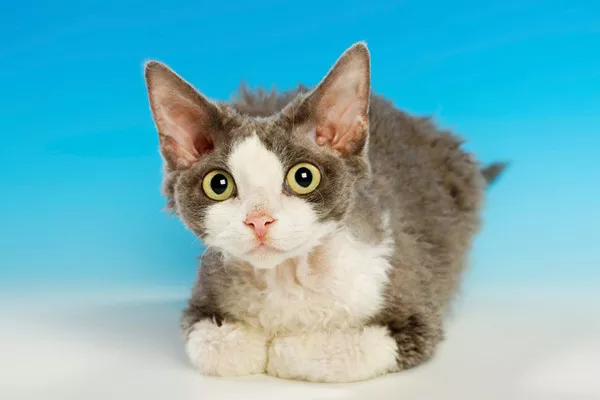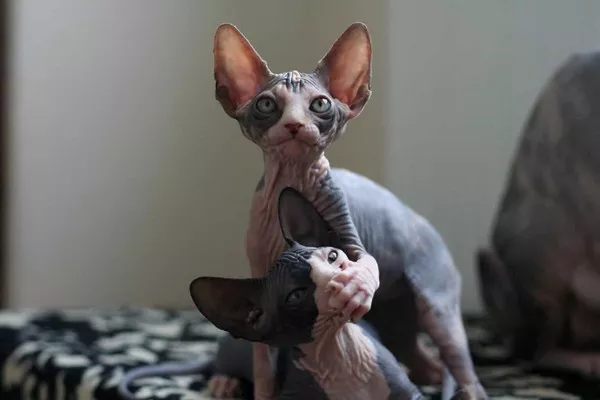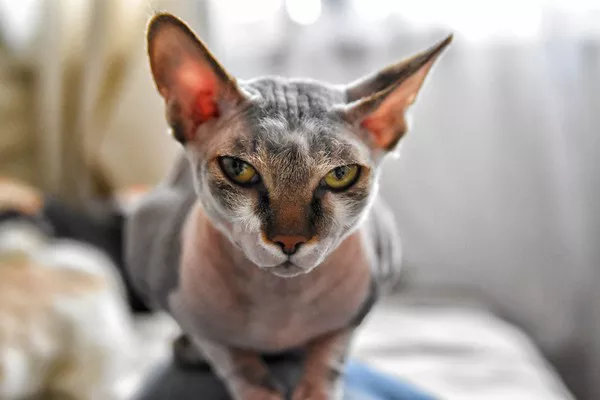Breeding Devon Rex cats is both an art and a science, requiring dedication, knowledge, and a genuine love for these unique feline companions. Recognized for their distinctive appearance, playful demeanor, and affectionate nature, Devon Rex cats make delightful additions to households. For those considering embarking on the journey of breeding Devon Rex cats, this comprehensive guide unveils the intricacies of the process, from selecting breeding pairs to caring for newborn kittens.
Devon Rex Breed: A Brief Overview
Devon Rex cats are a distinct breed known for their curly coats, large ears, and captivating eyes. Originating in England in the 1960s, the Devon Rex quickly gained popularity for its striking appearance and amiable personality. These cats are characterized by their wavy or curly fur, oversized ears, and a slender, athletic build. With an affectionate and playful nature, Devon Rex cats forge strong bonds with their human companions.
Process of Breeding Devon Rex Cats
1. Selecting Healthy Breeding Pairs
The foundation of successful breeding lies in selecting healthy and genetically sound breeding pairs. Prioritize cats with a well-documented lineage, free from hereditary health issues. A thorough understanding of the breed standard is essential, ensuring that selected cats align with recognized characteristics.
a. Genetic Screening: Conduct genetic screenings to identify potential carriers of hereditary conditions. Working closely with a veterinarian and utilizing available genetic testing can help minimize the risk of passing on congenital health issues.
b. Temperament Assessment: Beyond physical health, evaluating the temperament of breeding cats is crucial. A balanced and sociable temperament is desirable, as it contributes to the overall well-being of both the breeding pair and their future offspring.
2. Breeding Practices
a. Estrus Cycles: Understanding the estrus cycles of female cats is fundamental. Female Devon Rex cats typically experience estrus every two to three weeks. Recognizing the signs of estrus, such as increased vocalization and affectionate behavior, aids in determining optimal breeding times.
b. Controlled Breeding: Controlled breeding involves carefully planning mating sessions to maximize the chances of successful impregnation. Breeders may choose natural mating or opt for artificial insemination, depending on individual circumstances and preferences.
3. Pregnancy and Prenatal Care
Once a successful mating occurs, attentive prenatal care is crucial for the expecting queen. Provide a nutritious and well-balanced diet suitable for pregnant cats, ensuring adequate nutrition for both the mother and developing kittens. Regular veterinary check-ups monitor the health of the pregnant cat and identify any potential issues early on.
4. Birthing Process
Devon Rex cats generally have small litters, typically ranging from two to four kittens. Preparing a comfortable and secluded birthing area is essential. The birthing process, known as queening, requires minimal interference but close monitoring to ensure the safety of both the mother and kittens.
Postnatal Care: Postnatal care involves monitoring the health and well-being of the mother and newborn kittens. Provide a warm and quiet space, and observe nursing behaviors to ensure proper lactation. Intervene if any issues, such as difficulty nursing or signs of distress, arise.
5. Early Socialization
Early socialization plays a pivotal role in the development of Devon Rex kittens. Expose kittens to gentle handling, various stimuli, and positive interactions with humans from an early age. This fosters a well-adjusted and sociable temperament, enhancing the overall quality of life for the kittens and their future families.
6. Responsible Placement
Responsible placement involves thoughtfully selecting homes for the kittens. Screen potential adopters to ensure they can provide a suitable environment for a Devon Rex cat. Prioritize families committed to the well-being, health, and long-term care of the feline companion.
7. Continued Care and Support
The responsibility of a breeder extends beyond the initial stages of the breeding process. Provide ongoing support to new cat owners, offering guidance on nutrition, grooming, and general care. Stay connected with adoptive families, fostering a community of responsible and informed cat guardians.
Conclusion
Breeding Devon Rex cats is a labor of love, requiring dedication, knowledge, and a commitment to the well-being of the feline companions. From selecting healthy breeding pairs to providing lifelong support to adoptive families, responsible breeding encompasses a myriad of considerations. Aspiring breeders who approach the process with a genuine passion for the breed and a dedication to ethical practices contribute to the continued well-being and popularity of the beloved Devon Rex cat. Ultimately, the journey of breeding these unique felines is a rewarding endeavor that celebrates the beauty and charm of this distinctive breed.


























